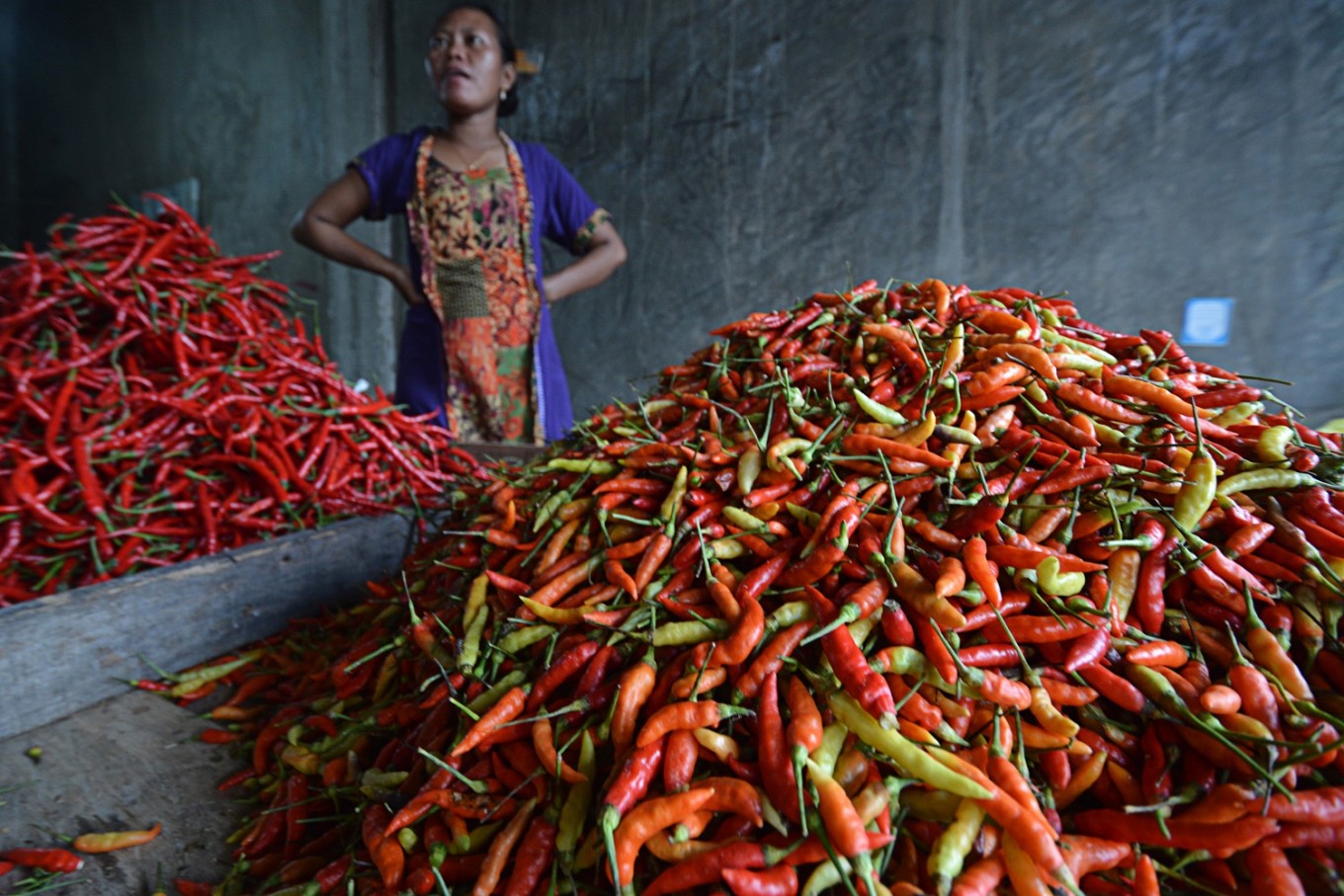Popular Reads
Top Results
Can't find what you're looking for?
View all search resultsPopular Reads
Top Results
Can't find what you're looking for?
View all search resultsGovt breaks up exploitative prices
Change text size
Gift Premium Articles
to Anyone
There’s a recurring phenomenon each year when the Ramadhan fasting month comes around: staple food prices pick up.
As people are familiar with the situation, they seem to take it for granted, assuming that a peak in demand will naturally increase prices.
However, this seemingly “general truth” does not apply to Trade Minister Enggartiasto Lukita, who believes the pattern is neither correct nor normal and speculators play a big role in pushing up prices.
Determined to change this, in early April the minister called on big producers and distributors of staple foods such as sugar, cooking oil and meat, to set reasonable price level for themselves as well as their consumers.
“I locked them in the auditorium [of the Trade Ministry] for three days and nights. We did this until we agreed on the set prices,” Enggartiasto recently told reporters.
Since then, the price of sugar and cooking oil has settled at Rp 12,500 (94 US cents) per kilogram and Rp 11,000 per kg, respectively, while frozen beef and Indian buffalo are sold for up to Rp 85,000 per kg and Rp 80,000 per kg, respectively.
The mutually agreed to price ceilings came into effect on April 10.
The move is designed to anticipate the fasting month in late May and the Idul Fitri festivities in late June as people in Indonesia, the world’s most populous Muslimmajority country, eat much more than usual to break their fast or cook special dishes during family gatherings.
The Trade Ministry has also joined forces with a food stability task force set up by the National Police along with related stakeholders, including the Agriculture Ministry, the Business Competition Supervisory Commission (KPPU) and state-owned logistics firm Bulog, to closely monitor food prices and avert food hoarding practices nationwide.
The effort seems to be generating the desired goal. At the beginning of Ramadhan, prices of staple foods climbed modestly, reversing trends seen in previous years.
Data from hargapangan.id shows that on Friday, the price of bulk cooking oil rose by only 2.5 percent to Rp 12,300 per kilogram, while the price of fresh meat was up 2.86 percent to Rp 32,350 per kg and the price of eggs was up by 4.23 percent to Rp 22,200 per kg. Garlic prices, meanwhile, slipped by 0.86 percent to Rp 51,600 per kg.
The price of frozen beef, for example, is now lower than last year when the price rose beyond Rp 120,000 per kg.
Up to Wednesday, Bulog claimed it had secured 33,000 tons of buffalo meat and 360,000 tons of sugar to distribute across the country.
Enggartiasto admitted that the still high price of garlic remained a concern and that this had been addressed through recent imports.
“I don’t say that relatively stable prices means that we’re 100 percent successful, but at least we’re seeing low inflation,” he said Wednesday.
Alleged hoarding practices by importers are said to be a cause of persistent high prices. The police are investigating these alleged practices in Jakarta, Medan and Surabaya.
In a separate development, the Central Statistics Agency (BPS) reported on Friday that monthly inflation stood at 0.39 percent month-on-month (mom), bringing the annual inflation rate to 4.33 percent year-on-year (yoy).
The inflation was primarily triggered by hikes in the prices of food commodities such as garlic, chicken eggs, chicken meat, rice and beef alongside other costs such as electricity, fuel, airline fares and cigarettes.
Coordinating Economic Minister Darmin Nasution acknowledged that May’s inflation was quite high and attributed this situation to volatile food components. He added that the government had found irregularities in the distribution of some food commodities, including garlic, with importers contributing to market distortions.
“Let the trade minister deal with them,” he said Friday.
Despite May’s inflation, Darmin said this year’s maximum inflation target, set at 5 percent, was still achievable by the end of 2017.
Bank Central Asia’s (BCA) chief economist David Sumual said imports of food commodities could help maintain a good supply and tame prices in the short- and medium term. However, in the long term, improved production will be the ultimate solution, he said.
“We should improve longterm food productivity because in terms of quantity, our domestic production of commodities such as garlic, is still low,” David said.










